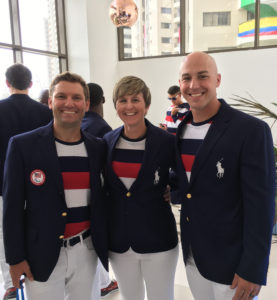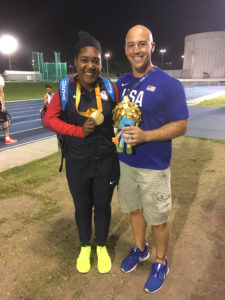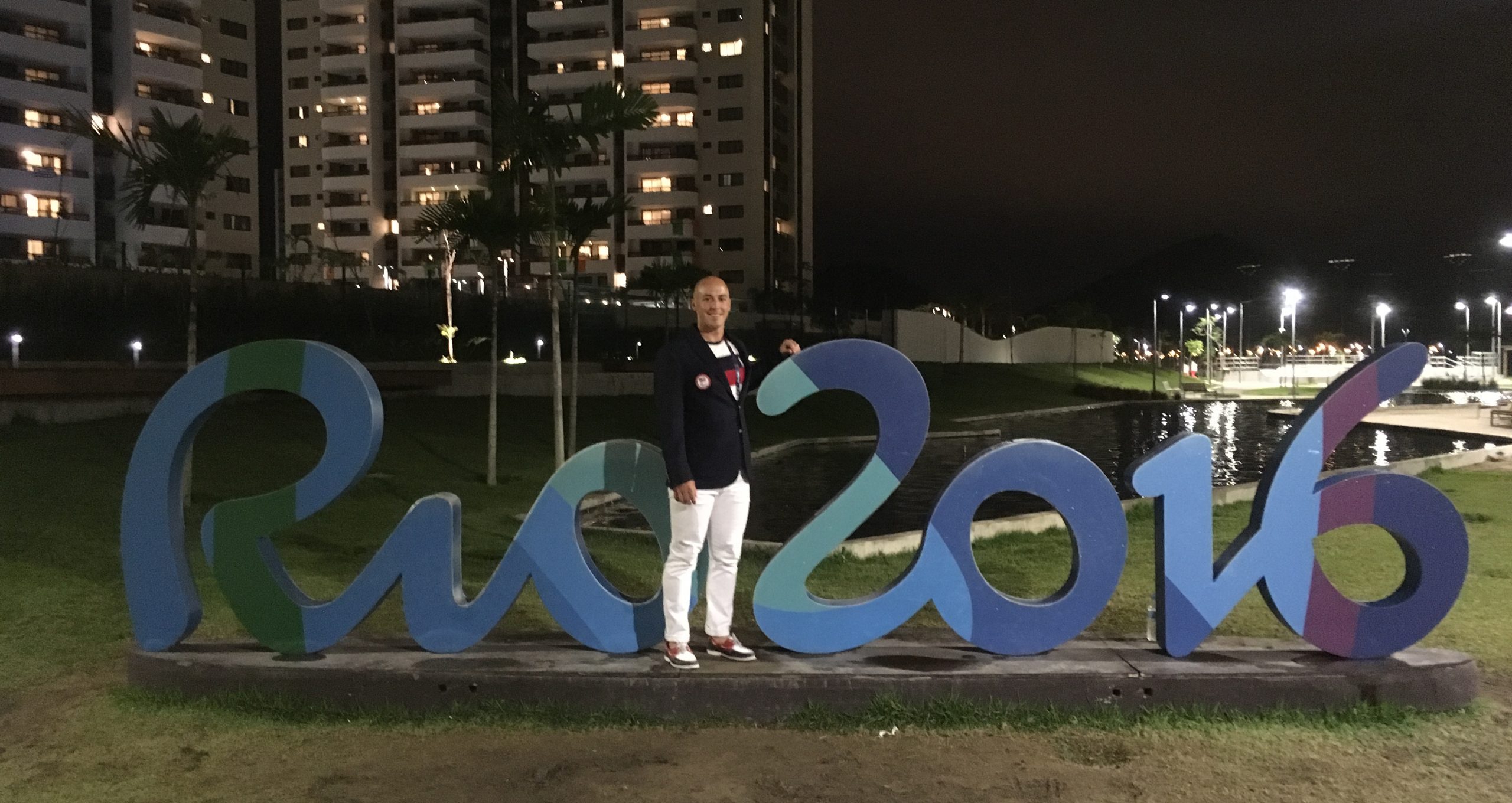Feature story by Laura Johnson, Sports Information Intern
While people all around the world spent months and years eagerly waiting for the 2016 Olympic Games in Rio de Janeiro, many had no idea that the 2016 Paralympics followed just a few days later in the same location. This was not the case for Matt Eberhardt, athletic trainer at Gustavus Adolphus College.

Eberhardt had the privilege of traveling to the 2016 Paralympic Games for three weeks last month to work with some of the most talented athletes in the world. He used his 11-years of expertise of working with collegiate athletes as he served as an athletic trainer for the USA Track and Field team.
Over the past seven years, Eberhardt has worked with field hockey, gymnastics, track and field, and Greco-Roman wrestling. Prior to accompanying the USA Paralympic team to Rio, Eberhardt volunteered at Paralympic training centers in Colorado Springs, Colo., Chula Vista, Calif. and Lake Placid, Colo. Eberhardt also worked with USA Track and Field at the 2015 Parapan American Games in Toronto, which is the qualifying event for the Paralympic games. Impressed with Eberhardt’s credentials, the National Governing Body (NGB) appointed him apart of the medical team for the USA Track and Field Paralympic team.
Eberhardt found the Paralympic athletes remarkable because of their ability to live their lives as if they don’t have a physical disability. Eberhardt met the “Armless Archer”, Matt Stutzman, in athlete’s village. Stutzman, 2012 Paralympic silver medalist, is a world record holder for longest accurate shot in archery.
“Matt Stutzman plays basketball, swims, lives his normal life, drives his own car,” Eberhardt said. “Matt is a normal guy, but also an elite athlete.”
A common question asked at the Paralympic games is, ‘how do Paralympic athletes feel about being seen as inspiring?’ After being around the Paralympic athletes for three weeks, Eberhardt was inspired by the way they go about living their lives.
“The biggest thing is how normally they live and train,” he said. “They are just like elite athletes in the Olympics, although, elite athletes are not normal people. Their full time job is competing and training, spending the same amount of time and energy on this as any other Olympian.”
Lex Gillette is a four-time Paralympian (2004, 2008, 2012, 2016) and a three-time Paralympic medalist (three silver medals). Gillette represents the USA Track and Field team in the long jump. He lost his eyesight at the age of 10 and is the only blind athlete in the world to eclipse the 22-foot barrier in the long jump. Eberhardt was able to talk with Gillette and get a better understanding of the athlete’s reality.

“He was a world record holder and had two silver medals at the time, and I was realizing anybody walking by just saw a blind man and nobody knew who he was,” Eberhardt said.
The 2016 Rio Olympic games aired a total of 6,000 hours, compared to only 66 hours aired at the 2016 Paralympic games. In Great Britain, the Paralympic athletes are more recognized because of the Paralympic coverage provided there. Eberhardt believes that with more worldwide coverage of the Paralympics, more people would aspire to compete at that high of a high level. They would witness Lex Gillette competing in the long jump, trusting his guide to tell him the exact second when to release, and realize that they are also capable of reaching such heights.
Eberhardt is excited to be back at Gustavus and share his experience in Rio with others. He hopes to increase interest in the Paralympic games and spread the remarkable stories of Paralympic athletes.
“This experience wouldn’t have been possible without the unconditional support from my coworkers, wife, and two-year-old son,” Eberhardt said. “I can’t thank my coworkers enough for working extra hours and filling in for me when I was in Rio. My wife showed tremendous flexibility, hiring babysitters and watching our son while juggling work. My wife and my co-workers deserve a lot of thanks.”

Comments
One response to “Gustavus to Rio: Athletic Trainer Matt Eberhardt Works With World-Class Athletes”
Great story Matt! Looks like this is so rewarding and I’m so happy and thankful that you share your time and heart! Gustavus is lucky to have you on their staff and I know the volleyball staff and team really appreciate you! As well as the parents!